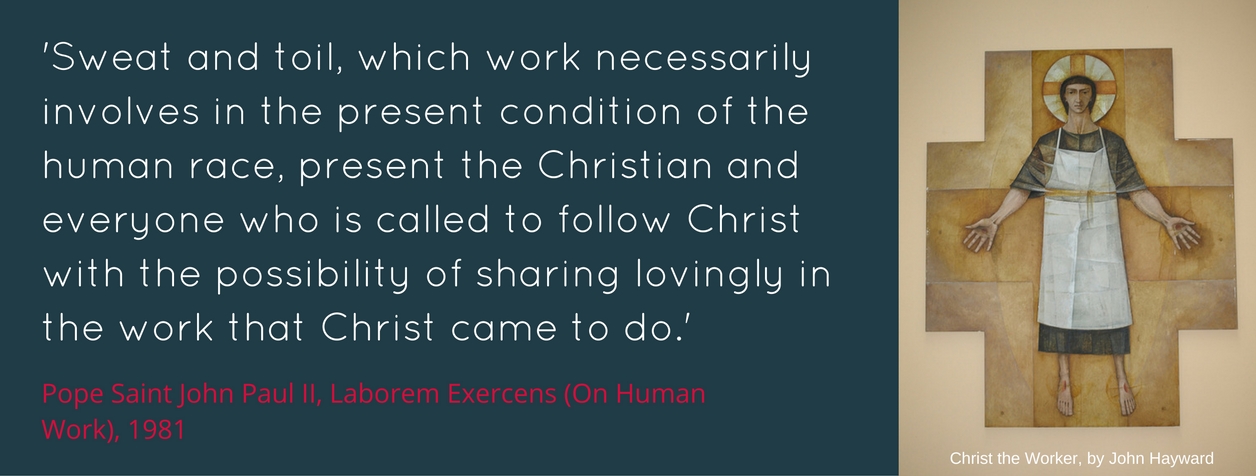What demands does Catholic Social Teaching make on government, employers and employees?
By Rob Flello
Oliver Twist was published in 1837 – the period which marked the end of the first Industrial Revolution. In the following fifty years, Britain underwent enormous social change and innovation. The country saw the growth of huge disparities between the riches of a small elite and the mass destitution of the working classes. By 1889, the London Dockers were on strike for their tanner: Cardinal Manning went on to successfully mediate in the dispute.
Just two years later, in 1891, Rerum Novarum was published. Pope Leo XIII wrote, “working [people] have been surrendered, isolated and helpless, to the hardheartedness of employers and the greed of unchecked competition…a small number of [the] very rich have been able to lay upon the teaming masses of the laboring poor a yoke little better than that of slavery itself” (1).
In this way, Catholic Social Teaching makes some quite specific demands on government, employers and employees. At its simplest it requires them to act in the best interests of each other to avoid excessive greed and to look out for the well being of the people. It seeks dignity for all and the self-respect of those concerned.
The right to work
Former Vice-President of the USA, Joe Biden, is not alone when he notes his father’s advice that, “a job is about more than a paycheck. It’s about your dignity. It’s about respect. It’s about your place in your community”. According to the Mental Health Foundation ,“being in work is important for everyone’s health and well-being; it gives us a purpose…, promotes independence, allows us to develop social contacts, and is a factor in preventing both physical and mental health problems” (2). Clearly, the right to work has many important aspects. Work can improve self-esteem and confidence, reducing depression and psychological distress.
Most of the obligations on employers flow from the rights of their workers. Employers should look on their workers as in a relationship with them of mutual need and support, not simply as commodities in themselves, as a slave master would.
The role of the State
Throughout Catholic Social Teaching, the Church is very clear on the need for a strong state with the ability to intervene to maintain justice. It is also clear that the State should not overstep the mark and interfere wrongly in family, property and other aspects of life.
In the UK, legislation has been introduced regulating working hours, the age of child employment and the right to paid time off, as well as maternity and paternity leave. In addition to National Minimum Wage, we have pay and gender equality laws and wide-ranging employment and health and safety legislation. There is also some regulation over the markets and businesses. But what we don’t have is any regulation covering zero hours contracts, which are widely regarded as being grossly unfair to the employee in favour of the employer. Moreover, there is tension around free trade deals, free movement of labour and market deregulation. If UK employers are free to bring in workers who are able to under-cut the terms and conditions of the existing workforce, then I consider that is also in direct contravention of Rerum Novarum and its successor encyclicals, and harms both the existing workers and those coming to take the jobs.
Note 1 – Pope Leo XIII, Rerum Novarum, 3 (1891)
Note 2 – Mental Health Foundation, ‘Employment is vital for maintaining good mental health’ (2012)
Rob Flello is a political consultant, former Labour Member of Parliament for Stoke South and former shadow Justice Minister. This blog post is a shorter version of a speech given at ‘Working for a Better Future’, at the Mechanics’ Institute in Manchester, on 1 May 2018.
The opinions and positions expressed in this blog are those of the author and do not necessarily reflect those of Caritas Social Action Network.

